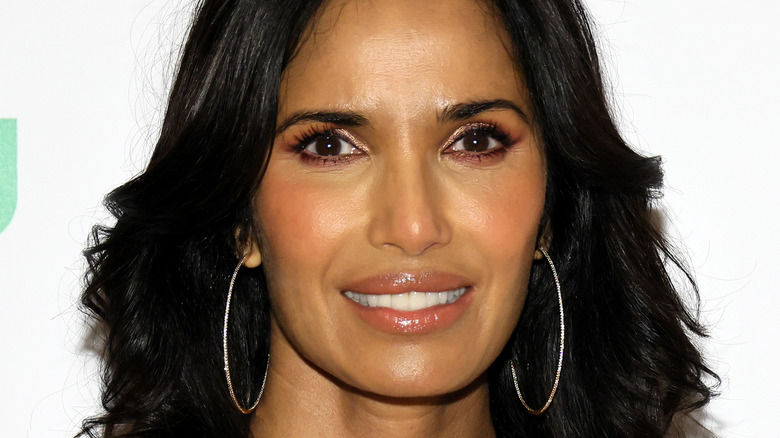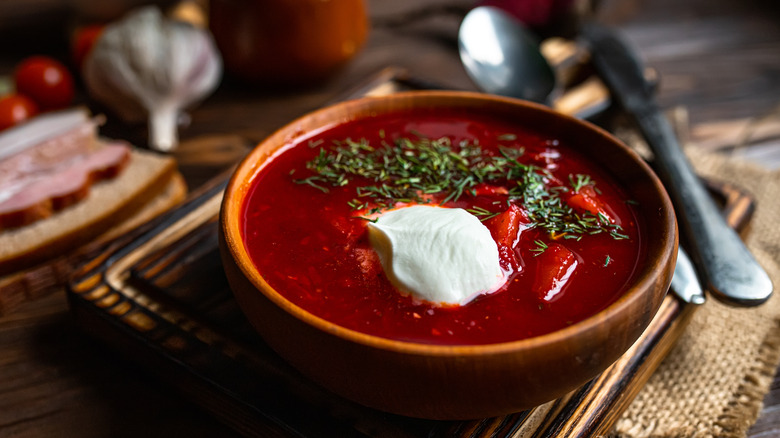Padma Lakshmi Uncovers The Biggest Misconception About Borscht - Exclusive
Food can teach us a lot about who we are and where we come from. Many would argue it's one of the best platforms there is to bring people together, find common ground amid diversity (and adversity), and learn about people and cultures. All you need is an open mind and an empty stomach. That's the whole idea behind "Taste the Nation with Padma Lakshmi." The hit Hulu show is back with Season 2, and just like Season 1, each episode is dedicated to shedding light on an important political issue that impacts a particular population of Americans — all through the lens of delicious dishes and shared moments around the table.
It's not surprising that one episode of Season 2 focused on exploring the Russia-Ukraine conflict, which has dominated the news for more than a year. Lakshmi visited two Ukrainian neighborhoods in New York City — Brighton Beach in Brooklyn and the East Village of Manhattan — to get a better idea of how this ongoing historically rooted conflict is so tied to the question of Ukrainian identity. And there's no better way to illustrate that than through the ongoing debate surrounding borscht.
Speaking exclusively with Mashed, Padma Lakshmi shared the biggest misconception about borscht that she learned during the episode, and its deeper meaning for Ukranians everywhere.
While it comes in many forms, borscht is Ukrainian at heart
If you're not familiar, borscht is a hearty sweet-and-sour vegetable soup primarily made with root vegetables, typically featuring beets and cabbage. You'll recognize the soup by its bright pinkish color, usually dotted with a garnish of dill and sour cream. It is popular all across Eastern Europe, and there are many different types of borscht. And while borscht is now pretty widely known across the globe, what many people don't know is that this dish is originally Ukranian, not Russian. It is the national dish of Ukraine and an important symbol of cultural unity for the country. Lakshmi admitted that she herself had an eye-opening experience: "The first time I had [borscht] was at The Russian Tea Room. I thought it was Russian, too."
For some, mistakenly associating borscht with Russia represents the larger fight for Ukrainian identity — especially amid the decades-long political crisis between the two countries, which has seen Russia make sovereignty claims over parts of Ukraine. "We wanted to do an episode about Ukrainians because so many people in the West conflate Ukrainian culture with Russian culture," Lakshmi told Mashed. "We wanted to give context and a history lesson, and we do it through borscht, which is a dish that many people think is Russian."
Season 2 of "Taste the Nation with Padma Lakshmi" is now available on Hulu.

